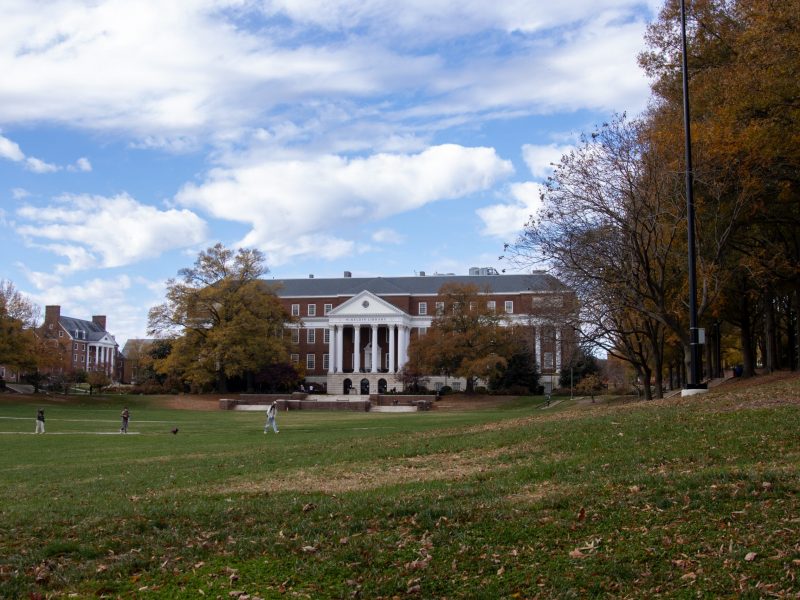By Heerah Jayakumar
For The Diamondback
University of Maryland community members gathered in Stamp Student Union on Monday at a panel event to discuss how reentry affects the families of incarcerated people.
The panel was hosted by the UnLocked Project, a student-led organization working to support children of incarcerated parents, in collaboration with Reentry Redefined, a student organization aiming to lower re-incarceration.
The panel was held to bring awareness to issues commonly faced by incarcerated people and how these influence their families and communities, according to the event flyer. The panelists highlighted ways to better support incarcerated people and difficulties in rehabilitation.
Panelists included alumni and professors who have been affected by familial incarceration and work closely with incarcerated people around Maryland.
Panelist and university alum John Hart mentioned specific struggles people face when readjusting to life outside of prison, such as lack of paperwork and a driver’s license.
“There’s not a concrete plan to really start integrating people,” Waunita Scott, a panelist and reentry housing provider in Baltimore, said. “There’s no funding available, so housing is their biggest challenge.”
[Meet the UMD student who was the first African American Scripps national spelling bee champion]
Panelists also discussed the complicated feelings family members of incarcerated people may have growing up or living without much contact with their loved one.
Scott shared her experience growing up with an incarcerated mother. She said it took decades to forgive her mother for not being a present figure in her life.
“One time we were watching TV, and she started talking, and I said, ‘Shh,’” Scott recalled during the panel. “She said, ‘Don’t shush me, I didn’t raise you like that,’ and I said, ‘You didn’t raise me.’”
For UnLocked Project vice president Sara Mohammad, the stories of panelists stuck with her because she grew up navigating a difficult relationship with an incarcerated family member.
It’s easy for children with incarcerated parents to feel ashamed as they grow up, the junior psychology and criminology and criminal justice major told The Diamondback.
Mohammad said some people already have negative perceptions of her family because of their Muslim identity. This led her to not share her struggles with familial incarceration growing up out of fear she would be judged.
“You don’t want people to know because you don’t want people to have a certain image of who your family is,” Mohammad said.
[UMD women, gender, sexuality studies department celebrates history, new archive project]
UnLocked Project president Anna Tovchigrechko told The Diamondback that her experience with familial incarceration also influenced her perspective on how reentry affects family members. The senior psychology and criminology and criminal justice major said it’s common for children of incarcerated parents to feel complex emotions about their situation.
“There’s sometimes an unrealistic expectation that people may have when reentry does happen,” she said. “That is actually a pretty complex process that is filled with a lot of bittersweet emotions, and children might be angry.”
Mental health and substance abuse as a result of incarceration can also be a cause for reincarceration and troubles reentering society, according to Hart.
Panelists emphasized the importance of treating incarcerated people with dignity rather than depriving them of human connection and experiences.
“These systems are designed to treat both the children and the incarcerated people as lesser than,” Tovchigrechko said. “They’re actually fully fledged people who have made mistakes.”



